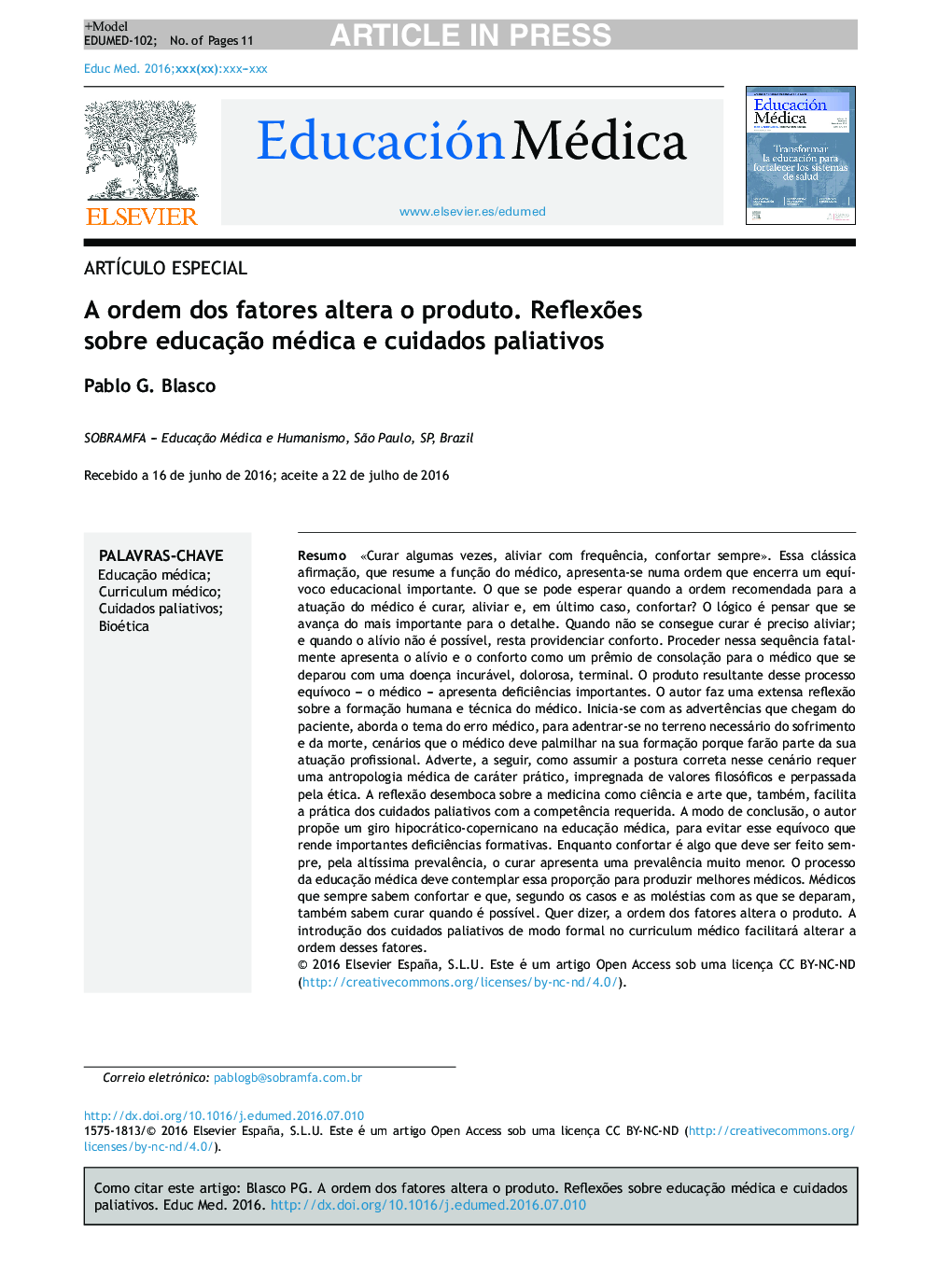| Article ID | Journal | Published Year | Pages | File Type |
|---|---|---|---|---|
| 8732409 | Educación Médica | 2018 | 11 Pages |
Abstract
“To heal sometimes, to relieve frequently, to comfort always.” This classic statement, summarising the doctor's role, is presented in a sequence that leads to an important educational error. What can be expected when the recommended order for the doctor's role is to cure, relieve and, ultimately, comfort? The logic is to think that we move from the main issue to the lesser one, to the details. When healing is not possible it can at least be relieved, and if it cannot be relieved, providing comfort still remains. To proceed in this sequence inevitably presents relief and comfort as a consolation prize to the doctor who was faced with an incurable, painful, and terminal disease. The resulting product of this process misconception âthe physicianâ has important deficiencies. The author makes an extensive reflection on human and technical aspects of medical education. The reflection starts with the warnings coming from the patient, the doctor's mistakes, and enters into the necessary land of suffering and death, those scenarios that doctors should learn in their training, as they will be part of their professional activities. To assume the correct posture in this scenario requires a practical medical anthropology, imbued with philosophical values, and permeated by ethics. The reflection then leads to medicine as a science and art that also leads to the practice of palliative care with the required competence. As a conclusion the author proposes a HippocraticâCopernican shift in medical education, to avoid this misconception that yields important training deficiencies. While comfort is something that should always be given due to its high prevalence, the cure has a much lower prevalence. The medical education process should include this ratio to produce better doctors. Doctors must always know how to comfort and, depending on the circumstances and the diseases with which they encounter, they also should heal when cure is possible. That means, the order of the factors changes the product. The introduction of Palliative Care in the medical curriculum could facilitate change in the order of these factors.
Related Topics
Health Sciences
Medicine and Dentistry
Geriatrics and Gerontology
Authors
Pablo G. Blasco,
